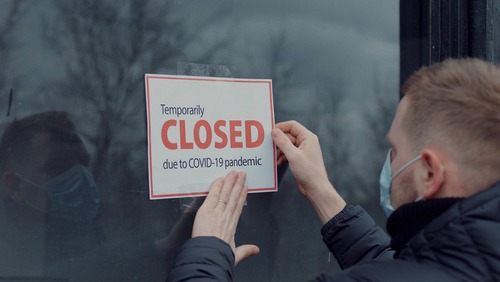
A new set of rules governing states of emergency were approved by Pennsylvania voters Wednesday.
More than 2 million ballots were cast in the vote on a pair of amendments to the state constitution giving the legislature more control over emergency declarations issued by the governor. The amendments were proposed by lawmakers who objected to the lengthy and unilateral emergency disaster declared by Democrat Gov. Tom Wolf in response to the COVID-19 pandemic.
The unofficial results from the Department of State Wednesday said the two questions were approved by 53.4 percent of the vote to 46.5 percent.
Speaker of the House Bryan Cutler and House Majority Leader Kerry Benninghoff, both Republicans, said in a written statement that the people had spoken and “resoundingly reaffirmed their desire for a government with strong checks and balances.”
“In doing so, they have rejected the mutation of emergency authority into unilateral, one-person control that seeks expediency over the rule of law,” said the statement, which also urged opponents of the changes not to challenge them in court. “To use the courts to continue to grasp onto power is to ignore a fresh mandate from those you represent and will confirm the worst fears of a public that wants to change course in the management of emergency periods,” it said.
Critics of Wolf had chaffed at the length of the declaration, which they said unfairly forced businesses to close down for too long. They also contended that Pennsylvania did not fare much better in managing the pandemic than states that had looser restrictions. The governor had renewed the COVID-19 disaster emergency declaration four times.
On Wednesday, supporters of the measures predicted that Pennsylvania’s COVID-19 restrictions were on the verge of ending. “We are heartened that we are one day closer to normal, to life and business as it should be,” the Chester County Chamber of Business and Industry said in a statement. “The unfair, unaccountable, non-transparent rules that have dictated our lives will be gone soon.”
Wolf had no immediate comment on the outcome of the vote and limited his Twitter feed Wednesday to calls for a higher minimum wage and charter-school reform, and also reporting that nearly half of the state’s adults had been fully vaccinated against COVID-19.
The current law allows Pennsylvania’s governor to declare a disaster emergency for as long as 90 days. The declaration can be extended in 90-day increments indefinitely until the governor determines that the emergency is over. The state General Assembly can pass a resolution ending the emergency, but a recent state Supreme Court ruling allows Wolf to veto such resolutions. The new rule allows the legislature to approve any extensions past 21 days by a simple-majority vote.
Senate Republican leaders said the election results showed that citizens want equal branches of government to work together.
“Pennsylvanians have made their choice clear – they want to see more collaboration and better results from their state government when responding to emergencies,” Senate President Pro Tempore Jake Corman and Senate Majority Leader Kim Ward said in a joint statement. “This is a responsibility that the Senate Republican Caucus takes seriously, and as leaders we are all committed to working together in the best interests of our Commonwealth. In the weeks ahead, we encourage Governor Wolf to come back to the table and discuss not only how we can better manage emergencies like the current pandemic, but also how we can help our state recover from COVID-19.”
Other supporters of the new limits said the change would bring Pennsylvania more in line with the founding tenants of U.S. democracy.
“It is prudent to allow executives to act quickly and decisively in an emergency,” saidCharles Mitchell, president and CEO of the Commonwealth Foundation. “However, the principles of representative self-government dictate that such decisive action cannot be maintained in perpetuity, without any valid check on executive power. Our state and federal governments must find ways to simultaneously protect the lives and livelihoods of the people while not violating our rights as free citizens.”